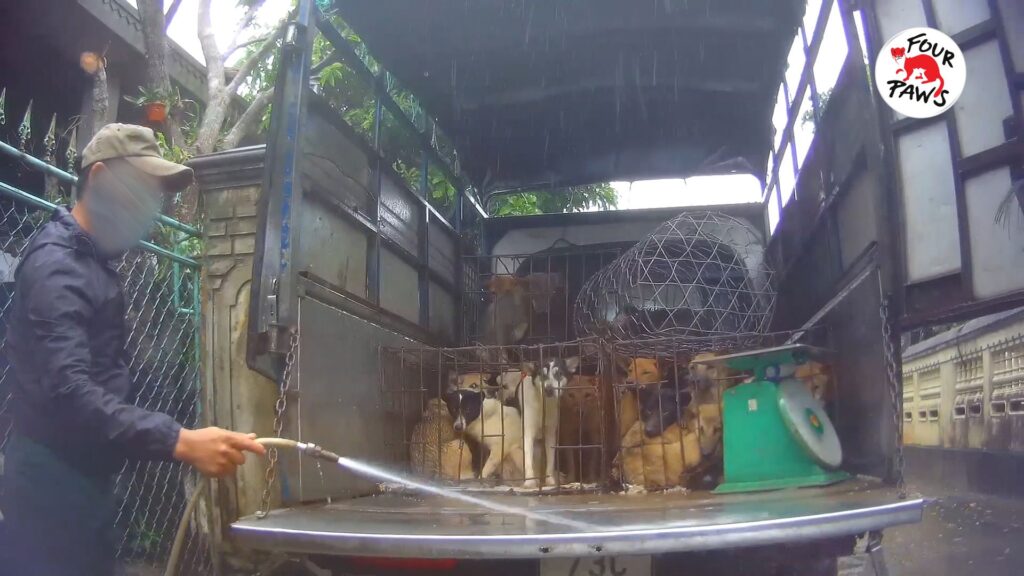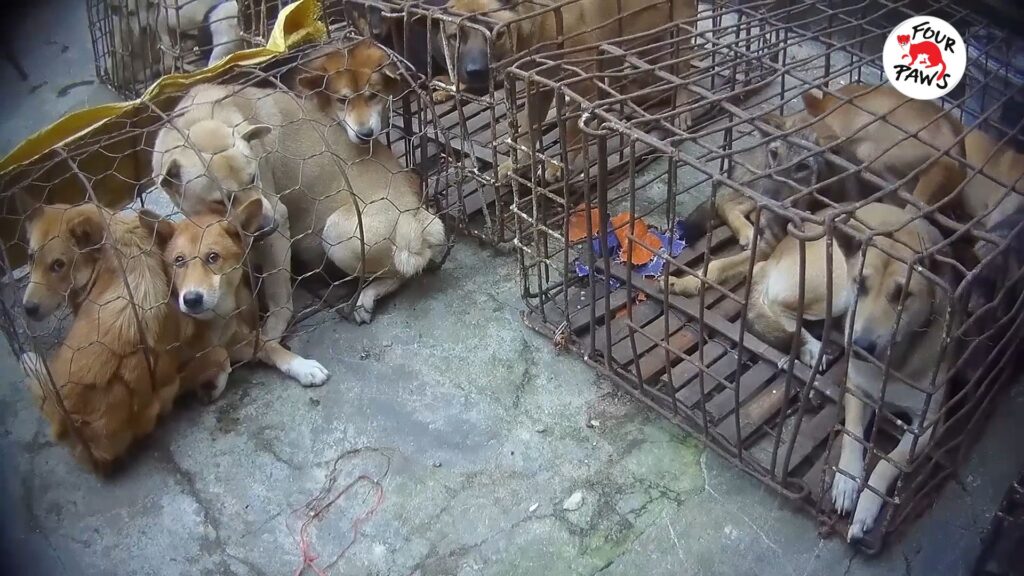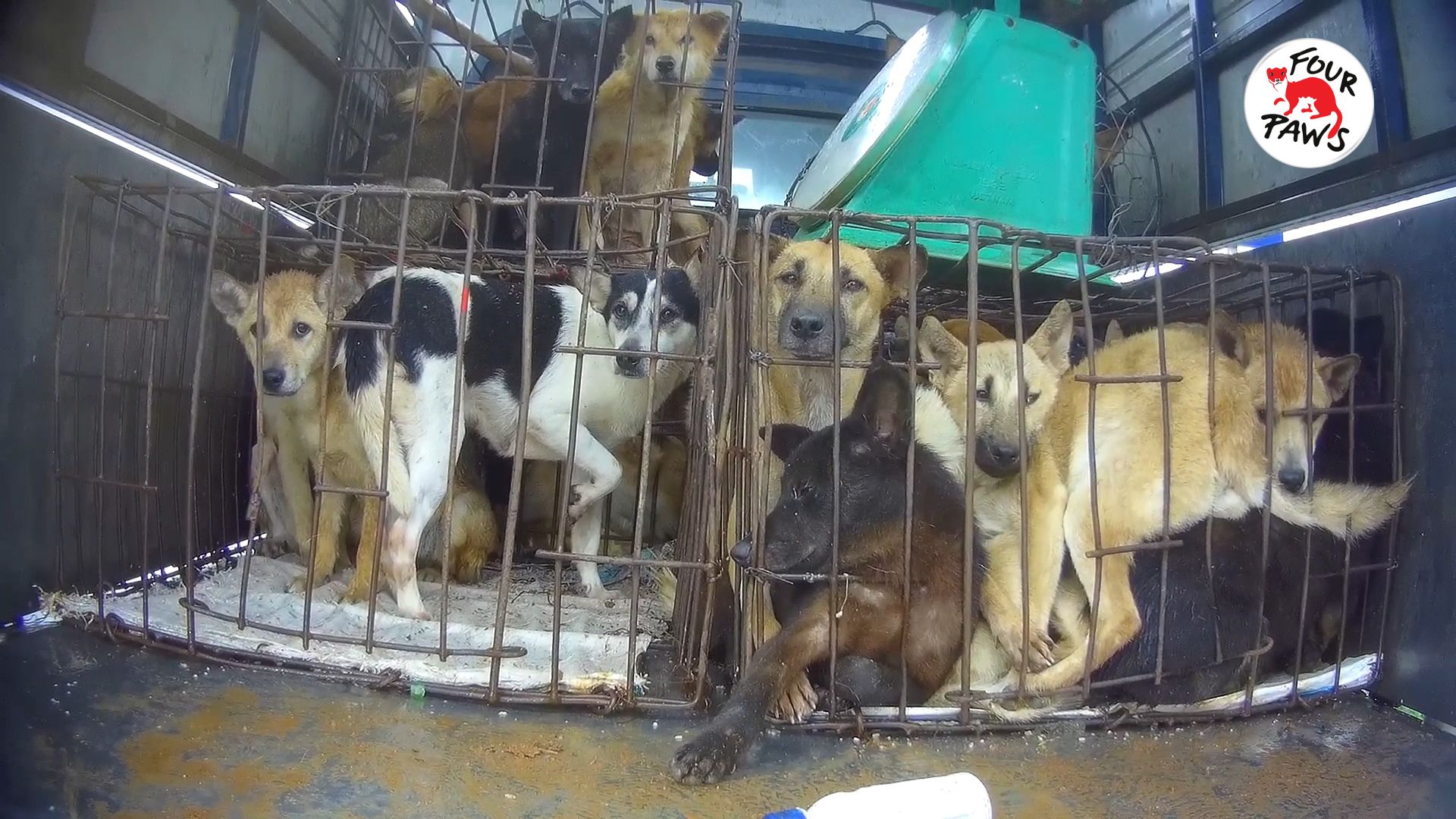New report by FOUR PAWS reveals scale of illegal trafficking of dogs and cats for their meat
Ha Tinh/Hanoi, 26 June 2024 – A recent undercover investigation commissioned by global animal welfare organization FOUR PAWS reveals the crucial involvement a single road has on the brutal killing of an estimated five million dogs and one million cats per year in Vietnam. The new report highlights National Highway QL 1A, which connects Ho Chi Minh City in the south with the capital, Hanoi, in the north, as the main “highway to hell” for the illicit dog and cat meat trade. The province of Ha Tinh facilitates the central ”hub of horror”, as it is a bottleneck for the distribution of stolen pets and snatched strays that causes the suffering of illegally trafficked animals, violates road traffic laws and jeopardizes public health. FOUR PAWS – which recently undertook its “Road to compassion” roadshow in three major Vietnamese cities to generate awareness – calls yet again for a nationwide ban on the cruel trade of dogs and cats for their meat.

During November and December 2022, FOUR PAWS conducted a covert investigation to expose the illegal trafficking of dogs and cats through the Vietnamese province of Ha Tinh. It concludes that not only is most of the transportation illegal, but that there are also massive shortcomings with regards to the execution of highway checkpoint inspection regulations.
Rebecca Dharmpaul, FOUR PAWS campaigner on the Dog and Cat Meat Trade, says: “What we have seen in this investigation can hardly be surpassed in terms of cruelty towards companion animals. Dogs and cats are crammed into tiny cages and transported hundreds of kilometers on trucks and motorbikes, only to be brutally driven out with iron tongs. They are beaten to death with sticks, electrocuted or have their throats cut once they reach their destination. The animals are often sold directly by the roadside to their torturers, who supply nearby restaurants, and many animals are transported illegally, in the luggage compartment of public buses and without the knowledge of the passengers.”
Illegal trade with a huge number of unreported cases
Only animal trucks are required to stop at official checkpoints to have their documents checked. Therefore, traders use other means of transportation such as passenger buses to avoid potential detection by officials, as they have no authority to stop them, unless traffic police have prior knowledge of them transporting animals.
“The report documents one case where over 150 cats and dogs were crammed into the luggage hold of a passenger bus, while passengers unknowingly awaited their arrival. Eventually, two thirds of the animals were found dead, most likely suffocated next to the passengers’ belongings. Often the trade is not even hidden, as investigators documented cases where animal trucks were not stopped or subject to any inspections at all at checkpoints, which by Law on Husbandry 2015 and other relevant regulations is mandatory. Even where laws exist, they are rarely enforced.” says Dharmpaul.

Pet theft and the aspects of public health
The uncontrolled mass transport of unvaccinated animals in stressful and unhygienic conditions also increases the risk of zoonosis, as infected dogs and cats may transmit their diseases during transport to other animals, the traders, and the consumers.
Dharmpaul concludes: “The illegal trafficking of cats and dogs must be tackled by the traffic police and provincial quarantine station authorities, as current transport legislation is not effectively enforced. Transporting animals thousands of kilometres across Vietnam is not only an ordeal for the animals but can also have dramatic consequences for public health. The theft of pets, a common practice of traders, is both a traumatic experience for the animals and their owners. Only a nationwide ban on the trade of dogs and cats for their meat will prevent millions of pets and strays from this cruelty.”
Background
Each year, more than six million dogs and cats are brutally slaughtered in Vietnam. A FOUR PAWS survey conducted in early 2021 across Vietnam found that the majority of Vietnamese want their government to take action, with a total of 91% saying the trade should be banned or discouraged. When asked if they would support a ban on the dog and cat meat trade, 88% of respondents said that they would be in favor of such a measure. In addition, respondents were asked if they felt consumption of dog and cat meat was part of Vietnamese culture, with the resounding answer being no, with 95% indicating that this was not part of their culture.



